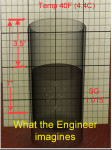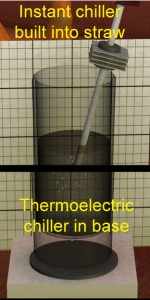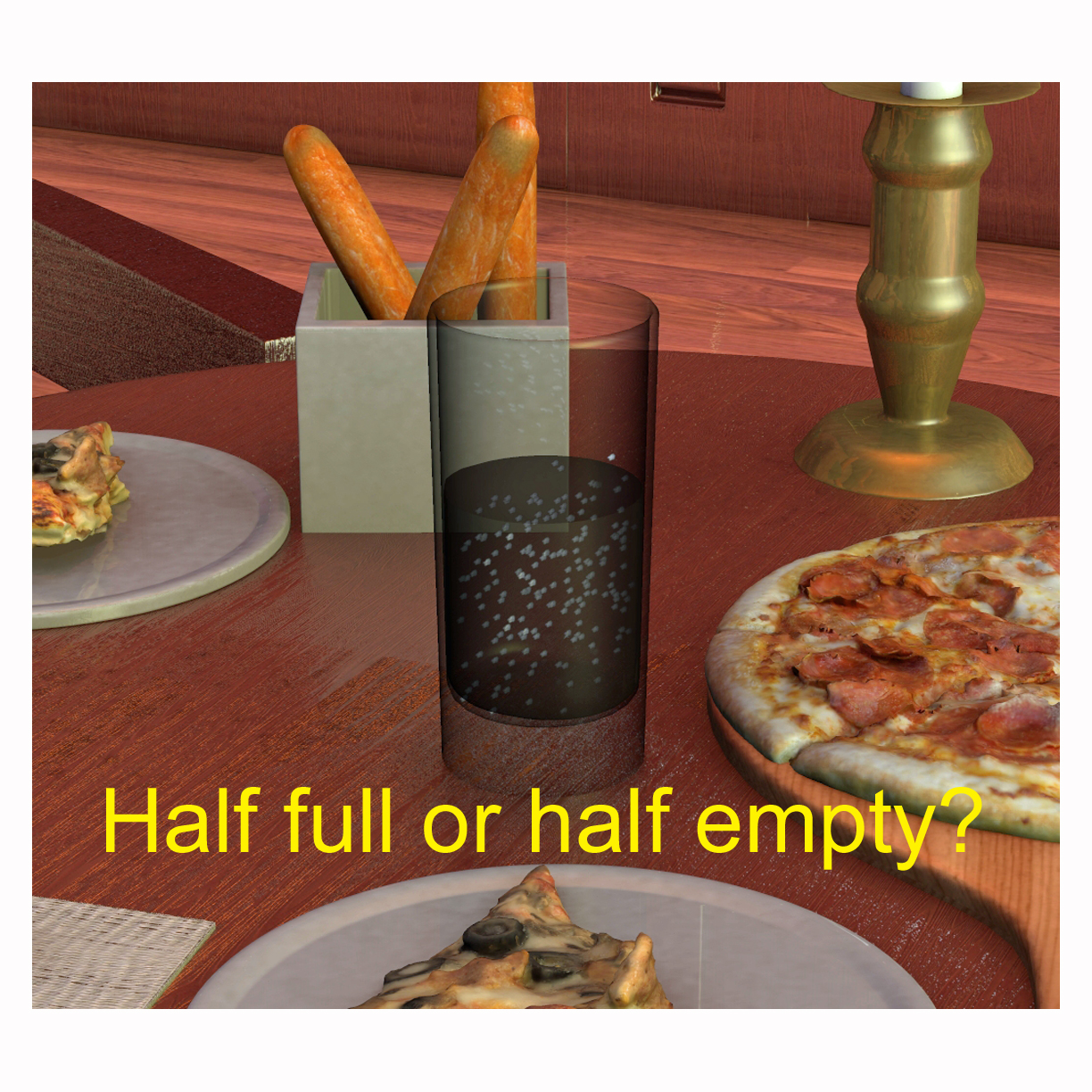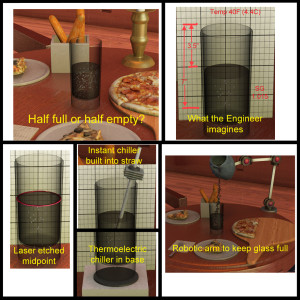My wife will confirm that living with an engineer is different. It’s not just that we tend to be socially inept or even standoffish. We see the world differently and until you spend time with one of us you can’t comprehend how differently.
All my life I’ve listened to people describe personalities as, “a glass half full type” or “a glass half empty type.” It seems obvious that people have to fall into one of those two categories, that is, unless you’re an engineer.
Before we go too far, let’s establish a few details. It’s almost a mathematical impossibility for the glass to be half full or half empty. Half implies an equality on both the empty and full areas. You haven’t established the point at which the glass is considered full, how can you assume that you are at the halfway mark?
Even if we assume full is the point at which no more liquid can be added without it spilling out, ignoring the effects of temperature change, the halfway point would be defined as exactly 50% of the total possible molecules contained in the glass. I defy you to measure that accurately and if, through blind luck, you make that 50% point, you just wasted 10 winning lottery tickets worth of luck. Your engineer will always caveat the statement with approximately.
From my point of view, approximately half full or approximately half empty are only descriptive of the current state of the glass. What liquid is in the glass? What is the desired state of the glass? Is there a problem for me to solve?
 There’s the crux of the matter, until there’s a problem for me to solve involving the glass and its unknown contents, approximately half full or approximately half empty are only a description of the current state. There’s no reason for me to investigate farther.
There’s the crux of the matter, until there’s a problem for me to solve involving the glass and its unknown contents, approximately half full or approximately half empty are only a description of the current state. There’s no reason for me to investigate farther.
Do you want me to determine the most probably fluid type using only the known weight of the glass when it’s empty and when it’s approximately half full. Do you want me to write an app to determine the density of the fluid using an echo return approximation on my phone and compared the speed of sound through air?
Do you want me to determine how fast it will evaporate in the 105F temperature of Texas after you tell the fluid type? We’re assuming I don’t decide to drink it first before we run an experiment to confirm my calculations.
 Do I need to come up with a way to keep the contents at a constant 40F, irrespective of the content level? Maybe I could develop an “on demand” straw that chills the contents as I suck it through a straw. Should I add a reservoir to keep the contents of the glass at the same approximate level despite sippage?
Do I need to come up with a way to keep the contents at a constant 40F, irrespective of the content level? Maybe I could develop an “on demand” straw that chills the contents as I suck it through a straw. Should I add a reservoir to keep the contents of the glass at the same approximate level despite sippage?
Maybe I could build micro machines into the glass that would scavenge enough power from the Brownian motion of the liquid to drive a small pump to keep the fluid at the current approximate level.
I know you think I’m making fun of you but the next time you see an engineer eying your approximately half full glass of ice tea, I assure you he’s not wondering about half full or half empty. He’s either thirsty or running through a similar list of possible solutions. It’s what we do.
Oh, it’s also the reason why my wife doesn’t let me do small talk in public.
© 2015 – 2019, Byron Seastrunk. All rights reserved.












Do You REALLY think most people have ever even thought of that as anything but a rhetorical question?
I agree with your Mother-in-Law… poor wife!!!
Is this a Part 1 of 2 or 3…because we never got back to the personality question. It is something I could provide a response on that would give an engineer something a whole new arena to run experiments in if you wish.
You are very lucky that you are married to such a quiet, patient, understanding woman 😉